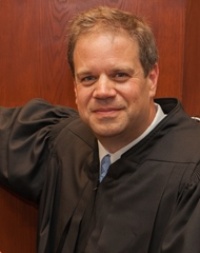In Minnesota, there are nearly 300 district court judges who preside over matters in ten judicial districts. While the Minnesota Rules of Court provide attorneys with significant information applicable to court proceedings, each judge may have his or her individual preferences with respect to motion practice and courtroom conduct.
In an effort to assist attorneys who may be appearing before a judge for the first time, the MSBA Civil Litigation Section Governing Council provided all district court judges with a brief survey. The responses that we received are organized on the right by judicial district and then alphabetically by judge’s name. We hope you find these responses to be helpful in your preparation for district court appearances.
For information about this project or to report an error in any judicial directory listing, contact Kara Haro, MSBA staff liaison to the Civil Litigation Section.
Seventh Judicial District Judges | Courtroom Preferences
Raupp, Robert J.
 District Court Judge
District Court Judge
Counties: Benton
State Court Bio: View Bio
Contact with chambers:
- Set forth your preferred method to contact chambers (telephone, e-mail, etc.). through court administration
- To whom may attorneys direct scheduling/logistical questions? court administration
- To whom may attorneys direct substantive questions? Their former law professor
Motion practice:
- Set forth your practices and procedures for scheduling motion hearings. contact court administration
- Identify any type of motion for which you do not require a hearing. attorneys fees
- Do you accept telephone calls from attorneys to rule on discovery disputes that occur during depositions? no
- How much time do you allot for motion hearings? 15-30 minutes
- Set forth your practices and procedures with respect to attending a hearing by telephone or video conference. not allowed
- Set forth your practices and procedures with respect to discovery motions. schedule hearing with court administration
- Set forth your practices and procedures with respect to stipulations of the parties, including stipulations for protective orders. signed by all parties, submitted in writing, no hearing required
- Do you have particular requirements or procedures relating to requests to amend the scheduling order? no
- Set forth your practices and procedures with respect to default proceedings. file and schedule motion hearing with notice to opposing counsel
- Set forth your practices and procedures with respect to handling emergency motions. Moving party should file with court administration and call ct. admin. to request the court to expedite
Written submissions:
- Do you want to receive paper courtesy copies of the parties’ written submissions? If you do, set forth the number and preferred format of courtesy copies and identify any document type you do not want to receive. No
- Set forth your practices and procedures for requests to deviate from the requirements of the General Rules of Practice for the District Courts. request should be in writing
In-court proceedings:
- Identify what technology you use in the courtroom and state whether you prefer a particular electronic format. state issued computers
- Set forth your practices and procedures with respect to attorney’s use of technology in the courtroom and during trial. We use laptop connections and document camera that are linked to video screens in the courtroom.
- Set forth your practices and procedures with respect to the submission of additional legal authority or other materials at or after oral argument. Only for new issues raised by the Court during the hearing
- Do you permit parties to bifurcate oral argument so different attorneys address different legal issues? Yes.
Pretrial procedures:
- Describe your preferred procedures for pretrial settlement conferences, including the timing of such conferences, persons who must attend, whether persons may attend by telephone or video conference, and how you participate in settlement discussions. All counsel must appear in person. I do not participate in settlement discussions.
- Set forth your practices and procedures for handling motions in limine. Generally, must be filed at least 2 weeks before trial
Trial:
- What is your schedule for a typical trial day? 8:30- Noon. 1:00p.m.- 4:30
- Set forth your voir dire procedures. Court asks most general intro questions, followed by attorneys
- Set forth your practices and procedures with respect to courtroom decorum, including movement in the courtroom, use of a podium, whether attorneys should sit or stand, and how to address witnesses. Counsel must stay behind counsel table, unless necessary to approach witness during examination.
Counsel stay behind podium during opening and closing.
Otherwise, counsel may remain seated.
Counsel should address witnesses as "Mr". or "Ms".
- Do you impose time limits with respect to opening statements and closing arguments? no
- Identify your practices with respect to the use of technology in the courtroom during trial. Counsel may use computer presentations (e.g.power point) for open or close. May display photos, documents and video using courtroom display screens (with preapproval of court)
- Set forth your practices and procedures with respect to marking and using exhibits. Mark prior to trial with court administrator, if possible.
- Set forth your practices and procedures for handling objections. State from counsel table, unless argument if more than one sentence long, in which case counsel should ask to approach the bench.
- Set forth your practices and procedures with respect to the use of deposition testimony. None
- May attorneys obtain daily transcripts during trial? If so, what procedure should attorneys follow? Maybe. Should inquire of court reporter.
- Set forth your practices and procedures with respect to attorney requests to contact jurors at the conclusion of trial. Never had one
Other matters:
- Set forth any other preferences, practices, or procedures attorneys and parties may find helpful. N/A